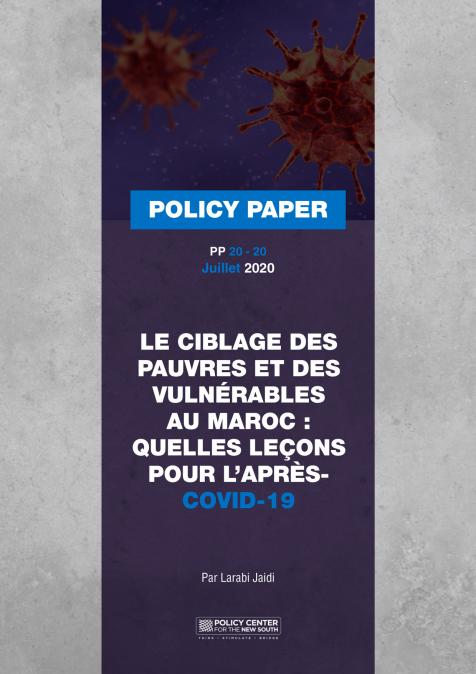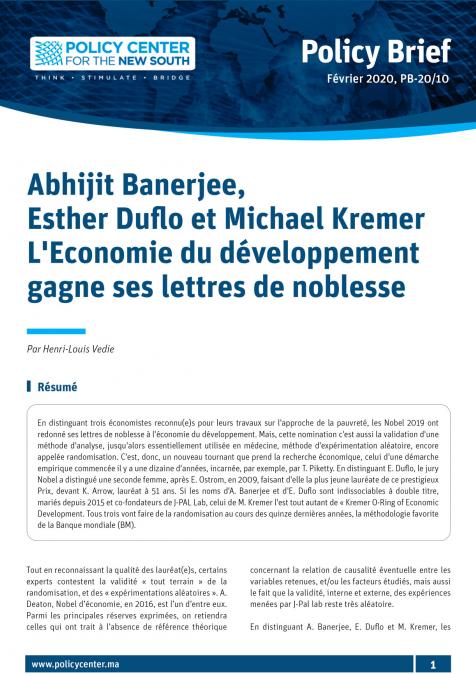Publications /
Policy Paper
Le ciblage est un point de focalisation de l’impact social des programmes de lutte contre la pauvreté et des aides monétaires de l’Etat aux catégories sociales pauvres et vulnérables. La pratique du ciblage n’est pas récente dans la trajectoire des politiques publiques. Elle donne lieu à des controverses sur les méthodes appropriées pour atteindre les populations cibles ou les territoires prioritaires des politiques et programmes sociaux. Les difficultés du ciblage sont devenues le mode d’explication des dysfonctionnements des filets sociaux de sécurité (RAMED, Caisse de Compensation, Tayssir, Programmes Initiative nationale du Développement humain…). Etant donné qu’il est difficile d’identifier chaque ménage pauvre, l’expérience a montré que le ciblage géographique pouvait, dans une certaine limite, s’avérer une approche d’importance dans les initiatives visant à atteindre les pauvres.
Aujourd’hui, la question du ciblage reste entièrement posée. On a eu de nouveau recours à ses mécanismes quand il fallait distribuer des aides sociales dans la crise de la Covid-19. Les leçons tirées des différents mécanismes de ciblage mis en œuvre sur la longue période peuvent s’avérer pleins d’enseignements sur la complexité de l’identification des catégories et des territoires-cibles, sur la mise en place d’un dispositif de scoring approprié, sur la construction d’un système d’information désagrégé, sur les procédés d’enquêtes pour l’appréciation des sources des revenus, des actifs ou des ressources des ménages…etc. Mais, les techniques de ciblage, quelle que soit leur pertinence, ne peuvent être d’un réel apport à l’efficacité des programmes des filets sociaux que s’elles s’appuient sur une définition rigoureuse des phénomènes qu’elles sont censées saisir (pauvreté, vulnérabilité), et si un système de sui-évaluation des programmes est établi et appliqué. La mise en place du Registre social unifié sera confrontée à la nécessité d’apporter des réponses à ces questions.





